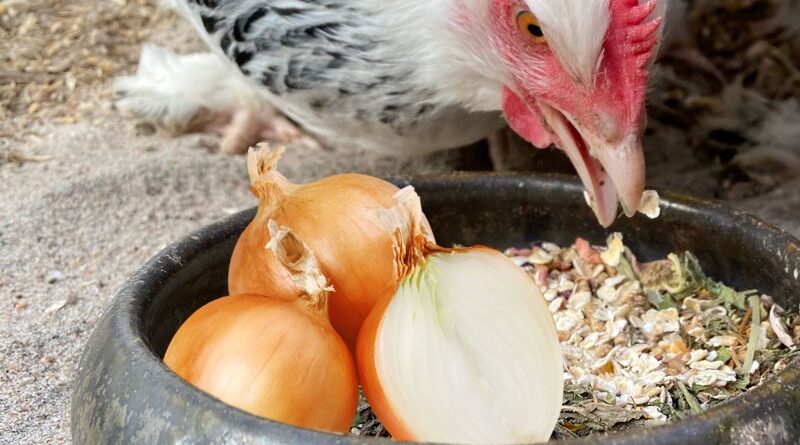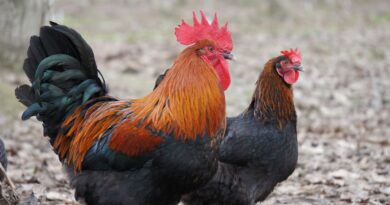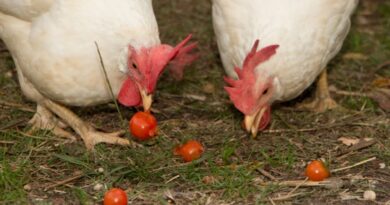Can Chickens Eat Onions? A Complete Guide to Safe Feeding Practices
When it comes to raising backyard chickens, the question of what they can and cannot eat is a critical consideration for every poultry owner. Among the many debated foods, onions often raise concerns. This article delves deep into whether chickens can eat onions, the potential risks, and safe feeding practices.
Understanding the Nutritional Needs of Chickens
Before exploring whether onions are safe for chickens, it is essential to understand their basic nutritional requirements. Chickens thrive on a balanced diet that provides proteins, carbohydrates, fats, vitamins, and minerals. Their primary source of nutrition should come from formulated poultry feed, but occasional treats like fruits and vegetables can supplement their diet.
The Composition of Onions
Onions belong to the allium family, which includes garlic, leeks, and chives. They are rich in vitamins C and B6, manganese, and antioxidants. While onions offer health benefits to humans, their effects on chickens are less straightforward. The key compound to examine here is n-propyl disulfide, a sulfur-based chemical responsible for the pungent smell and flavor of onions.
Are Onions Toxic to Chickens?
The toxicity of onions to chickens stems from n-propyl disulfide, which can cause a condition known as Heinz body anemia. This compound damages red blood cells, leading to reduced oxygen transport in the bloodstream. Chickens are particularly sensitive to this toxin due to their small size and unique metabolism.
Symptoms of Onion Toxicity in Chickens
If chickens consume onions in significant quantities, they may exhibit symptoms such as:
- Weakness and lethargy
- Pale combs and wattles
- Loss of appetite
- Difficulty breathing
- Reduced egg production
If you notice these symptoms after your flock has eaten onions, consult a veterinarian immediately.
Can Chickens Eat Cooked Onions?
Cooking onions reduces their n-propyl disulfide content, which makes them less toxic. However, even cooked onions should be given sparingly and as an occasional treat rather than a staple food. It is always better to err on the side of caution and avoid feeding onions altogether if you’re unsure.
The Risks of Feeding Onions to Chickens
While small quantities of onion may not cause immediate harm, the risks outweigh the benefits. Repeated exposure to onion toxins can lead to cumulative damage to the chickens’ health. Moreover, onions have a strong flavor that can alter the taste of chicken eggs, which might not be desirable for those who consume the eggs.
Safe Alternatives to Onions for Chickens
Instead of onions, there are plenty of safe and nutritious treats you can offer your chickens. Here are some excellent options:
- Leafy Greens: Kale, spinach, and lettuce are packed with vitamins and minerals.
- Fruits: Apples, berries, and melons (without seeds) make sweet, hydrating snacks.
- Vegetables: Carrots, peas, cucumbers, and zucchini are chicken favorites.
- Grains and Seeds: Oats, sunflower seeds, and cracked corn are energy-rich treats.
These alternatives not only provide essential nutrients but also keep your chickens happy and engaged.
How to Introduce New Foods Safely
When adding any new food to your chickens’ diet, it’s crucial to do so gradually. Sudden dietary changes can upset their digestive system. Follow these steps to introduce new foods:
- Start Small: Offer a tiny amount of the new food and observe their reaction.
- Monitor Health: Watch for any signs of discomfort or unusual behavior.
- Balance Their Diet: Ensure that treats make up no more than 10% of their total diet.
What to Do If Your Chickens Have Eaten Onions
If your chickens accidentally consume onions, the immediate step is to monitor them for signs of toxicity. Here’s what you can do:
- Remove any remaining onions from their environment.
- Provide fresh water to help flush toxins out of their system.
- Offer activated charcoal, if available, to absorb toxins.
If symptoms persist or worsen, seek veterinary assistance without delay.
Debunking Myths About Chickens and Onions
There are many misconceptions about feeding onions to chickens. Let’s address some of the most common myths:
- “Small amounts won’t harm chickens.” While this may be true for a single instance, repeated exposure can lead to health problems.
- “Onions improve egg flavor.” In reality, onions can impart an undesirable taste to eggs, making them less appealing.
- “Cooking onions eliminates all toxins.” Cooking reduces but does not completely eliminate the harmful compounds.
Understanding these myths helps ensure the safety and well-being of your flock.
The Importance of a Diverse Diet
Chickens are omnivores and thrive on a diverse diet. While their primary nutrition should come from high-quality feed, supplements like grains, insects, and vegetables play a vital role in their health. A varied diet:
- Enhances egg quality
- Boosts immunity
- Promotes healthy growth
Avoiding harmful foods like onions is a small yet significant step in maintaining this balance.
Frequently Asked Questions About Chickens and Onions
Can chickens eat onion peels?
No, onion peels contain the same harmful compounds as the bulb and should be avoided.
Are green onions safe for chickens?
Green onions or scallions also belong to the allium family and are not safe for chickens.
Can onion plants harm chickens?
Yes, chickens should not consume any part of the onion plant, including leaves, stems, or bulbs.
Conclusion: Should You Feed Onions to Chickens?
In summary, onions are not safe for chickens. Their toxic compounds pose significant health risks, and the potential benefits are negligible compared to the dangers. As a responsible poultry owner, your priority should be to provide a balanced and safe diet for your flock.
By offering nutritious treats and avoiding risky foods like onions, you can ensure your chickens remain healthy, productive, and happy. Always prioritize their well-being by researching any new foods before adding them to their diet.
Tips for Keeping Your Flock Healthy and Happy
Caring for chickens goes beyond providing food and water. Ensuring their overall well-being involves creating a safe, clean, and enriching environment. Here are some essential tips to keep your flock thriving:
- Maintain a Clean Coop: Regularly clean and disinfect the coop to prevent disease and pests.
- Provide Fresh Water: Always ensure your chickens have access to clean, fresh water.
- Offer Dust Baths: Dust baths help chickens stay clean and free from parasites.
- Ensure Adequate Space: Overcrowding can lead to stress and aggressive behavior.
Foods to Always Avoid in a Chicken’s Diet
In addition to onions, there are other foods that should never be given to chickens. These include:
- Avocado: The pit and skin contain persin, which is toxic to chickens.
- Chocolate: Contains theobromine, which can be lethal.
- Raw Beans: Uncooked beans contain lectins that are highly toxic to chickens.
- Moldy or Spoiled Food: Can lead to serious health issues, including botulism.
Knowing what to avoid is just as important as understanding what to feed your chickens.
Final Thoughts: Responsible Chicken Keeping
Raising chickens is a rewarding experience, but it requires diligence and care. Feeding them a safe and balanced diet, ensuring a clean environment, and staying informed about their health needs are all crucial aspects of responsible chicken keeping. By avoiding harmful foods like onions and prioritizing their well-being, you can enjoy the benefits of a happy, healthy flock that provides fresh eggs and endless joy




